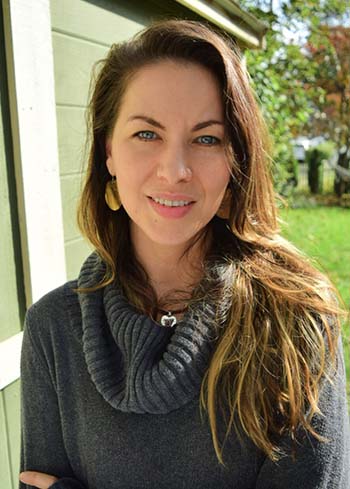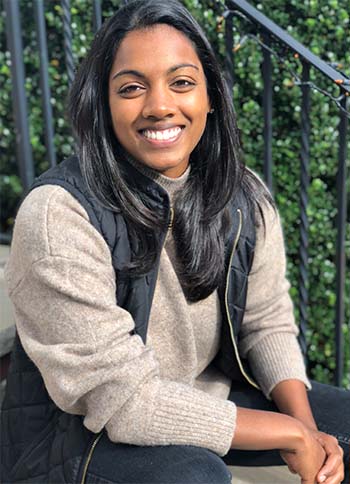Spotlight on BPAR’s Adult Adoptee Support Group Leaders
Because so many adult adoptees have asked us to add more support groups, Boston Post Adoption Resources now offers three types of adult adoptee support groups: Touched by Adoption, a creative writing group for all members of the adoption triad, run by Lisa Coppola; an Adult Adoptee Group run by Maya Rogers-Bursen; and a Search and Reunion Group, also run by Maya Rogers-Bursen. Below, our adult group leaders answer questions about their groups, why they feel they are such a powerful therapeutic tool, and what has led them to group work.
1. Tell us a little bit about your background and your personal path toward running adult adoptee group sessions.
Lisa:
I come from a family of adoptees. Both of my brothers and I were adopted from different families at different ages, all of us with much different stories. We all have grown to lead drastically different lives, and I have always found it interesting and heartbreaking to reflect on how each of our lives began. I always like to think about these sorts of things by looking deeper at the storylines.
I decided at age 28 to go back to school to become a therapist so I could look deeper with others about their stories. I found myself drawn to working in the field of substance abuse and addiction, and I’ve followed this path for many years. In this field, I found myself working with many adoptees and grew more interested in ways to help this demographic specifically. I discovered BPAR and visited Jen and Kelly one day to see if in some way my background in addiction might be helpful to the team here. Since then, I’ve been helping adult adoptees through BPAR, both in individual counseling and in group work. At BPAR, I have felt a true spiritual sense of home, that this work is what I am meant to be doing. Also, I love my clients.
Maya:
I was adopted from India when I was 6 months old. Growing up, I was surrounded by creativity within my family. My parents are famous folk singers and I cannot tell you a time when there was not a banjo or guitar being played in my house. As I grew up I realized art was my passion , especially film making and creating through baking. My mom introduced me to the idea of helping others through art making, and this led me to a career as an expressive art therapist. I completed my undergraduate degree in Art Therapy at Lesley University and my Masters degree in Mental Health Counseling with a specialization in Art Therapy, also at Lesley. Adoption work was introduced to me when I had the opportunity to intern at BPAR. I fell in love with the work and the idea of supporting adoptees through similar struggles I had growing up.
2. Tell us why you have chosen to run adult adoptee groups or adult triad writing groups:
Lisa:
I want to help people tell their stories and have always found healing, myself, through writing and then sharing what I have written. If someone is able to really dive into a thicker description of events from memory and then look at it from different angles through the process of writing, they will be able to find things like compassion, humor, struggle, and hope in places they had not been able to see when the story just stayed in their heads.
Maya:
While interning at BPAR, I had the opportunity to co-lead the Adult Adoptee Group. This experience was life changing and the reason why I decided to continue running this group and also introduce new groups into the BPAR community. The group provides the adult adoptee community a safe and welcoming place to feel supported when our life challenges are just too big to process alone. I choose to run the adult group because I believe adoptees need to find a holding space to explore similar experiences as an important part of their journey.
3. What are the benefits of group work?
Lisa:
Often in group work, members become close and start to feel a sense of belonging. By sharing personal writing, the vulnerability factor shoots up a bit for everyone. This is a good thing as vulnerability will be necessary to continue to evolve each group member’s writing into something to be shared or formed into a memoir or short story outside of our group.
Maya:
Group work often feels magical. As people, we can sometimes get wrapped up in our own stuff and think, “Why me?” What we sometimes forget is there is always someone out there with a similar experience. Groups provide a space for people to connect and support one another and discover that they are not alone.
4. What has surprised you the most or taught you about the value of group work?
Lisa:
Often when people first come to a group, it’s like they finally made it to the island, a place where they might be understood in a way they couldn’t be elsewhere.
Maya:
This community surprises me every group session we have. There is always a new topic, and I have the honor of watching those in the room nod their heads in agreement. I have learned the power of group work comes from holding a safe and trusting space for this community to explore their stories.
4. Do you view group work as healing, and if so, how?
Lisa:
Group work is healing through the feeling of belonging and connection the members come to, through the commitment to write for the group, and through the sharing process, when the words hold so much emotion. It is not uncommon for there to be tears from both readers and listeners.
Maya:
Group work is as healing as any other mode of therapy. Groups offer a space to heal with peers. This environment serves as a constant reminder that you are not alone. This in itself is healing. Being able to talk with someone who has been through a similar experience is what this work is all about.
To learn more about our adult adoptee support groups and other post adoption group therapy, please visit our Support Group page.

